Most interesting thing about finally watching this was knowing the creator of the manga was Taiyo Matsumoto, the same guy who created Ping Pong the Animation which is easily one of my favourite anime. And it was cool to see many of the elements that made Ping Pong special represented here, from the unique artstyle, the consistent use of visual symbolism, the supporting cast having their own distinct arcs, and centered around a strong duo relationship. It was cool to see all these elements still present in Matsumoto's earlier works, but I'd be lying if I said I loved any of these elements as much as I did with Ping Pong. I enjoyed the movie, but I would not consider this one of my favourites.
Without a doubt the strongest element here is the background art. The amount of detail included in this setting is often staggering, Treasure Town itself is one of the more visually impressive constructions in anime. The movie as a whole looks great, but the environments are easily the standout here. The OST largely didn't impress me much while I watched it, but having listened to some of it on youtube since watching it, there's definitely some solid compositions in here. "White's Dream" is pretty good, and I love "Safety in Solitude" which I think it the only track that stood out to me during my watch, sans the ending song by Asian Kung-Fu Generation.
But beyond that, the movie didn't really emotionally engage me. It was enjoyable but there were really only two scenes that had any emotional impact on me. The first being Black & White's first encounter with the alien, as that was one of the more effectively tense sequences I've seen in anime, and the second was Kimura killing Suzuki, with Suzuki himself continuing to instruct Kimura on how to handle this situation. So the fact the two main story threads of this movie both had someone I did latch onto in the end was nice, though admittedly I'm mixed on how separated these story arcs are. Ping Pong juggled multiple different character arcs at once, but it all felt cohesively interconnected. All very much felt like different branches of the same tree, in a sense that's kinda true here. The changes to the city and the important of love are both represented within both story threads, but otherwise they feel very separated from each-other, almost as if I'm watching two different movies that just happen to take place at the same time in the same general location. There's something novel about that which I definitely appreciate, it would've been more generic if Kimura's story inter-mingled with Black & White's more directly, but it did make the film feel less focused and a little more lopsided.
I just don't know if the two stories here balanced off each-other well. I think the intention was to highlight this perspectives of the themes through an adult and child lens. With Black & White the changing of Treasure Town is represented through nigh unstoppable monsters directly attacking them, but sandwiched in that battle is Suzuki lamenting the passage of time while enjoying a, largely empty, strip show. I think that moments effective, but otherwise I don't think the two truly play off each-other well. The differences are still showcased as the Black & White dive more into surreality (White floating down from the building) as opposed to the more grounded moments of Kimura's story (like the post-coitus cigarette/pregnancy reveal), or how the climaxes to both stories play out, one this surrealist mental war and the other just standard gun play. It's nice that there's different framing but outside of the earlier aforementioned moment, I'm not sure there's much here where one story elevates another through the pairing.
Though I think my biggest disconnect comes with the main duo in general, Black & White. The yin yang nature of them is blatantly apparent, outright explicitly stated by White even, and it's so much to the point where I don't really see them as characters, but more as a concept. Moreso with Black than White, since White has several oddities so-to-speak that make him stand out as an individual, but I can't say I ever got invested in their particularly relationship, because their relationship as a yin yang pairing was all I really saw them as. Black's dealing with The Minotaur (side-note: some people criticize not foreshadowing the Minotaur reveal enough, I'd say the opposite, I wish they didn't have a scene where a character outright theorizes it because that dulled the reveal imo since I figured it out from that) is interesting mostly down to the method of it's depiction. I love the visuals, I love the Minotaur's voice, the strongest sequence of the film on purely a visceral level. But I didn't find it compelling on a character level, because Black himself isn't much of a character outside of the yin yang relationship with White.
For what it's worth though, the yin yang dynamic itself is very well portrayed. I appreciate the different ways in which the balance each-other out. Like I'm glad White needing Black isn't expressed solely through physical protection, how he needs him for more basic functions like dressing himself and stuff. It's not that I think this method of writing characters is wrong or even poorly done, it just impedes my ability to get emotionally connected to the characters when I only seem them for what their relationship with the other one represents than as individuals. I also want to say, the toilet paper belt thing at the beginning of the movie was this kind of childlike invention that I loved and did immediately endear me to White at least, it just didn't carry over for the whole film. 7/10. |
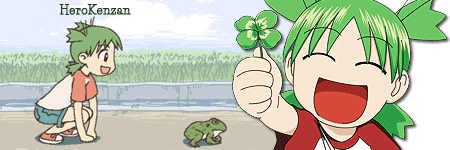



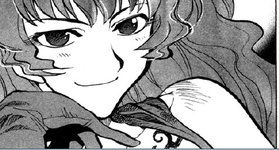
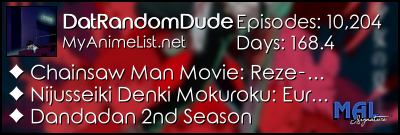




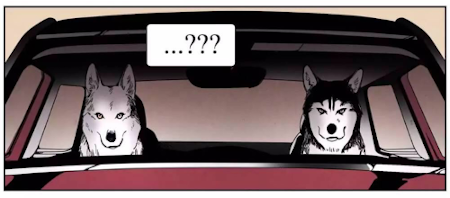



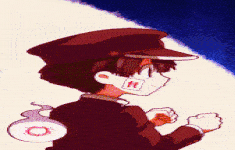
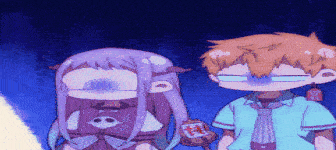
 |
|


